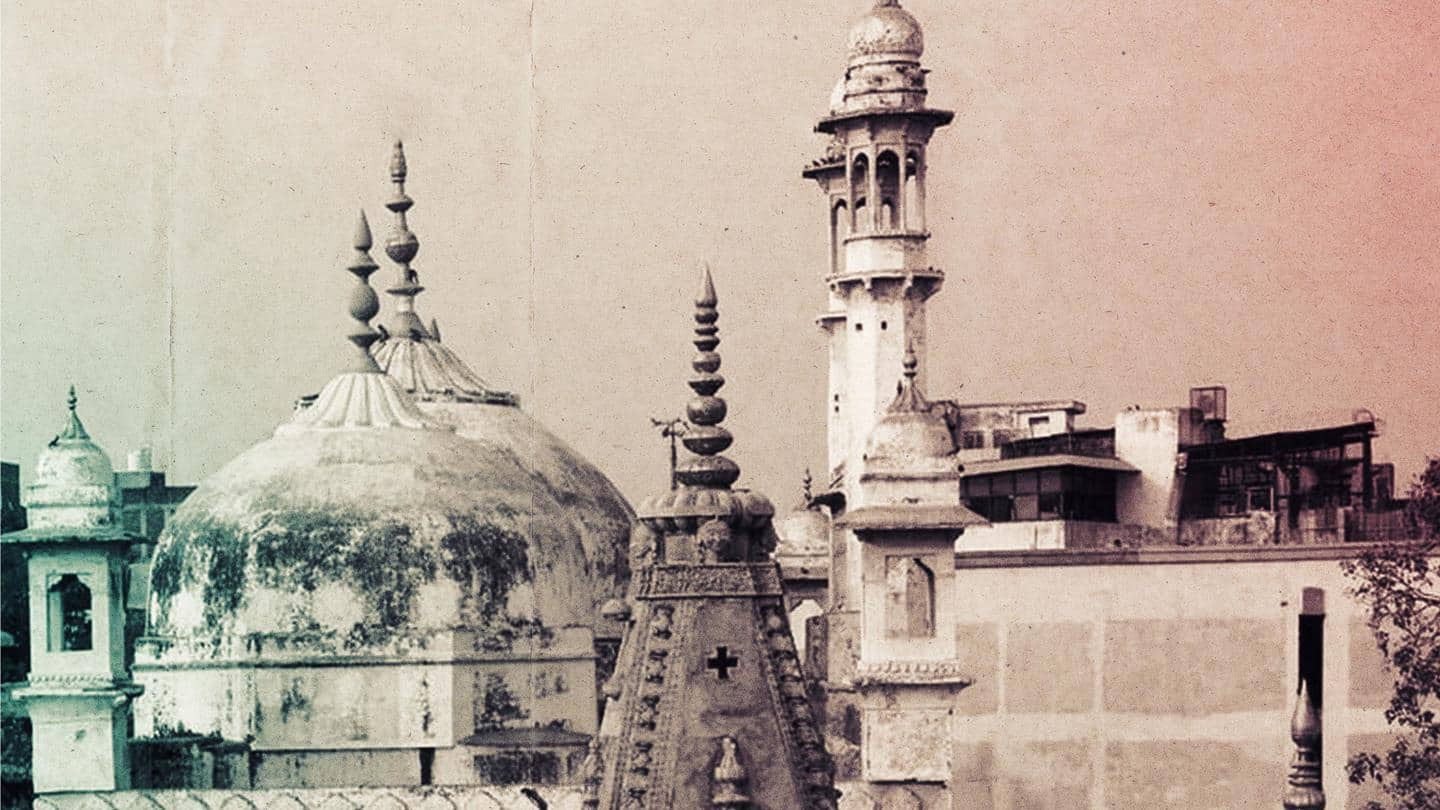
Gyanvapi case: Varanasi court rejects 'carbon dating of shivling' plea
What's the story
A Varanasi court in Uttar Pradesh on Friday rejected the plea by Hindu petitioners seeking a scientific probe on shivling which was reportedly found inside the Gyanvapi Mosque complex during a survey. The court was hearing a plea filed by Hindu women petitioners demanding the scientific probe and carbon dating of shivling. Earlier, they had sought permission for year-long worship within the mosque complex.
Context
Why does this story matter?
The Gyanvapi row infamously said to be India's 'Babri Mosque 2.0' has been in the headlines this year. In May, the court had ordered to seal off the area inside the mosque where a shivling was allegedly found, but the management said it is part of the wazukhana's foundation. Later, the Supreme Court directed authorities to protect Muslims' access and right to offer namaz.
Order
'Carbon dating would breach Supreme Court order'
The court led by senior most judge stated that any survey such as carbon dating would be a breach of a Supreme Court order sealing the location of the shivling inside the mosque, reported NDTV. The court further stated that any damage to the building or shivling would hurt religious sentiments and reduce the possibility of a legal resolution.
Details
Discovery of 'shivling' during video survey
According to reports, the shivling or a relic of Lord Shiva was reportedly found inside the Gyanvapi Mosque complex earlier this year during a video survey that was conducted under the direction of a lower court in response to a plea filed by five Hindu women. They had sought access inside the mosque complex so they could pray there all year long.
Response
Challenge by the management of the mosque
The Anjuman Intezamia Masjid Committee which runs the mosque's management had contested the maintainability of the Hindu side's petition. It also opposed scientific investigation, claiming that the issue had nothing to do with the mosque's building and was instead related to worshiping at a shrine inside of it. The committee claimed that the object being called shivling is actually a "fountain" inside a wazukhana.
Proceedings
A big win for Hindu petitioners in court
On September 12, the court decided to hear a plea filed by five Hindu women demanding the right to worship inside the mosque. The judge stated that the court will continue to consider the women's plea, which resulted in a survey within the mosque. The court had dismissed the plea by the mosque management challenging the maintainability of the Hindu petitioners' plea.
Background
Hindu hardliners believe Gyanvapi mosque built on temple ruins
The Gyanvapi mosque is near Varanasi, Prime Minister Narendra Modi's constituency. According to reports, it is one of the mosques on a list of buildings that Hindu hardliners think were erected on temple ruins. It was one of three temple-mosque rows raised by the Bharatiya Janata Party (BJP) in the 1980s and 1990s, along with Ayodhya and Mathura.